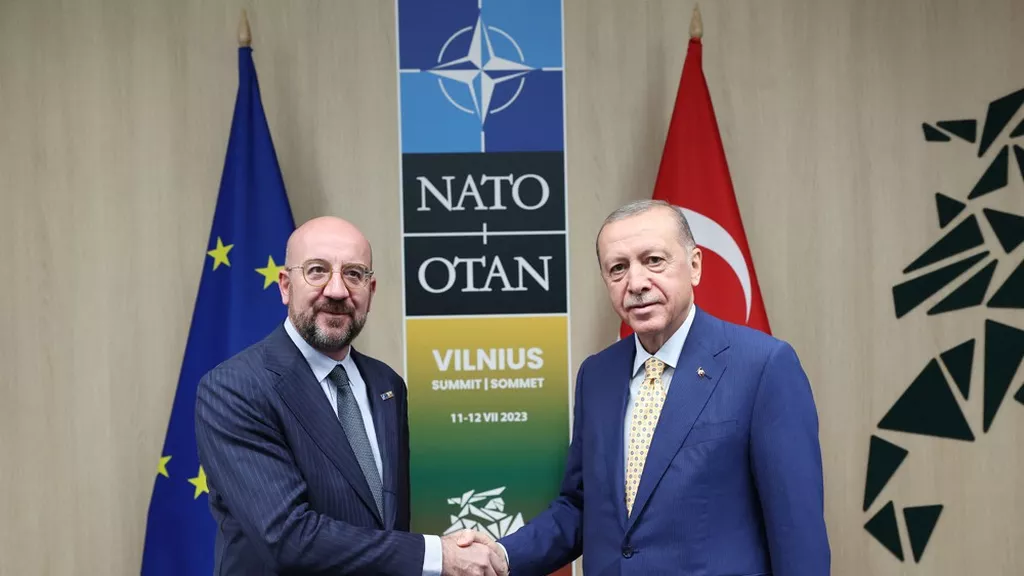By trying to link Sweden’s membership of NATO and his country’s accession to the EU, the Turkish president has obtained a boost in the reassessment of his relations with the Union. The subject will be on the agenda of the Foreign Ministers on July 20.
By pretending, on the eve of the Atlantic Alliance summit in Vilnius, to condition his support for Sweden’s accession to NATO to the relaunch of negotiations for Turkey’s accession to the EU, the President Turkish surprised. The two subjects, a priori, have nothing to do with each other.
Chancellor Olaf Scholz recalled this on Monday, saying from Berlin that Turkey’s old and complex candidacy for the European Union should not be considered as a subject linked to Sweden’s entry into the alliance. military. “Scholz’s reaction illustrates the general state of mind,” said a diplomatic source.
Recep Tayyip Erdogan, however, managed to advance his European agenda, since Charles Michel, President of the European Council, tweeted, after his meeting with the Turkish President in the Lithuanian capital, that the two men had “explored opportunities for our cooperation to become important again and to revitalize our relations”. From Vilnius, he filtered that the Belgian was thinking in particular of deepening the customs union and improving the visa regime.
Window of opportunity
“The two accession processes are indeed disconnected, but they involve many of the same actors”, remarked one of the participants at the NATO summit, for whom “after the recent elections in Greece, Cyprus and Turkey, there has a window to seize” to rebuild the link between the EU and Turkey, which has been very damaged in recent years.
Ankara’s positioning in the war in Ukraine, Turkey’s role in circumventing sanctions against Russia, irritated the Twenty-Seven. Relations had already been strained since the failed coup attempt in July 2016, which triggered massive purges of political opponents and journalists.
Trading freeze
As early as November 2016, the European Parliament called for Turkey’s accession negotiations to be frozen. They were eighteen months later. Ankara had applied for membership of the EEC in 1987, signed a customs union agreement with the Europeans in 1995 and started its membership negotiations in 2005.
Turkey is currently going through a serious economic crisis. Its president needs to intensify trade with the EU, and to attract investors, hence his recent pivot towards the Union. The Turkish question will be on the agenda of the meeting of foreign ministers on July 20 in Brussels – it was even before Recep Tayyip Erdogan’s coup on Monday.
Strategic vision
The file already appeared in the conclusions of the European Council of 29 and 30 June, in which the Twenty-Seven ask Josep Borrell, head of European diplomacy, and the European Commission, to draw up a report on “the state of relations between the EU and Turkey”, proceeding “with a strategic and forward-looking vision”.
A preliminary draft of the document indicates that “the war in Ukraine has further raised Turkey’s geostrategic importance”, according to the Politico website. Even if the report is not expected until the end of the year, the subject will not fail to come up at the Granada summit scheduled for the beginning of October, where there will be much talk of enlargement.
This article is originally published on lesechos.fr









